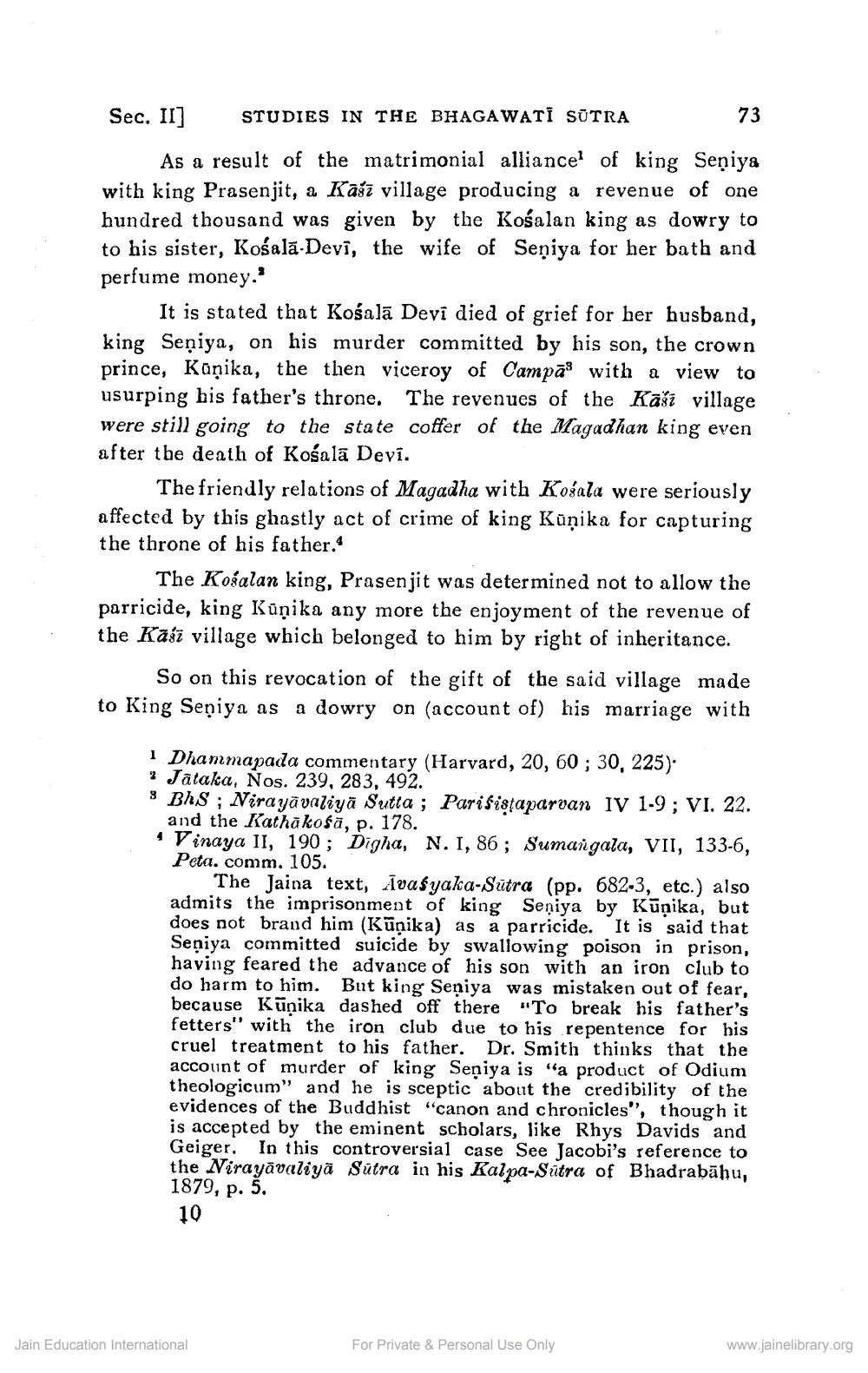________________
Sec. II]
STUDIES IN THE BHAGAWATI SŪTRA
As a result of the matrimonial alliance' of king Seniya with king Prasenjit, a Kāši village producing a revenue of one hundred thousand was given by the Kośalan king as dowry to to his sister, Kośala-Devi, the wife of Seniya for her bath and perfume money."
It is stated that Kośala Devi died of grief for her husband, king Seniya, on his murder committed by his son, the crown prince, Kanika, the then viceroy of Campa" with a view to usurping his father's throne. The revenues of the Kasi village were still going to the state coffer of the Magadhan king even after the death of Kośala Devi.
The friendly relations of Magadha with Kosala were seriously affected by this ghastly act of crime of king Kūnika for capturing the throne of his father.4
73
The Kosalan king, Prasenjit was determined not to allow the parricide, king Kūņika any more the enjoyment of the revenue of the Käsi village which belonged to him by right of inheritance.
So on this revocation of the gift of the said village made to King Seniya as a dowry on (account of) his marriage with
1 Dhammapada commentary (Harvard, 20, 60; 30, 225). Jataka, Nos. 239, 283, 492.
3 BhS; Niraya valiya Sutta; Parisistaparvan IV 1-9; VI. 22. and the Kathakosa, p. 178.
Vinaya II, 190; Digha, N. I, 86; Sumangala, VII, 133-6, Peta. comm. 105.
The Jaina text, Avasyaka-Sutra (pp. 682-3, etc.) also admits the imprisonment of king Seniya by Kunika, but does not brand him (Kunika) as a parricide. It is said that Seniya committed suicide by swallowing poison in prison, having feared the advance of his son with an iron club to do harm to him. But king Seniya was mistaken out of fear, because Kunika dashed off there "To break his father's fetters" with the iron club due to his repentence for his cruel treatment to his father. Dr. Smith thinks that the account of murder of king Seniya is "a product of Odium theologicum" and he is sceptic about the credibility of the evidences of the Buddhist "canon and chronicles", though it is accepted by the eminent scholars, like Rhys Davids and Geiger. In this controversial case See Jacobi's reference to the Nirayavaliya Sutra in his Kalpa-Sutra of Bhadrabāhu, 1879, p. 5.
10
Jain Education International
For Private & Personal Use Only
www.jainelibrary.org




